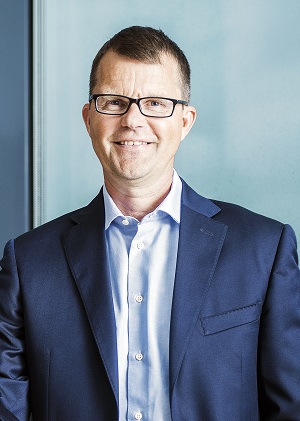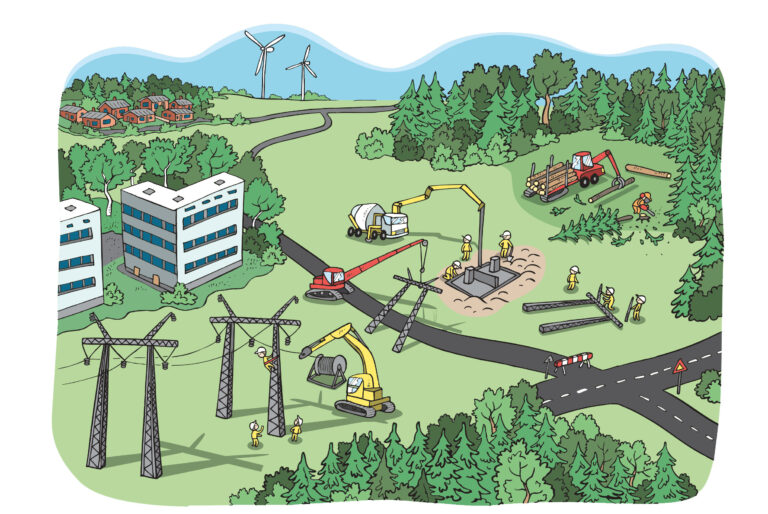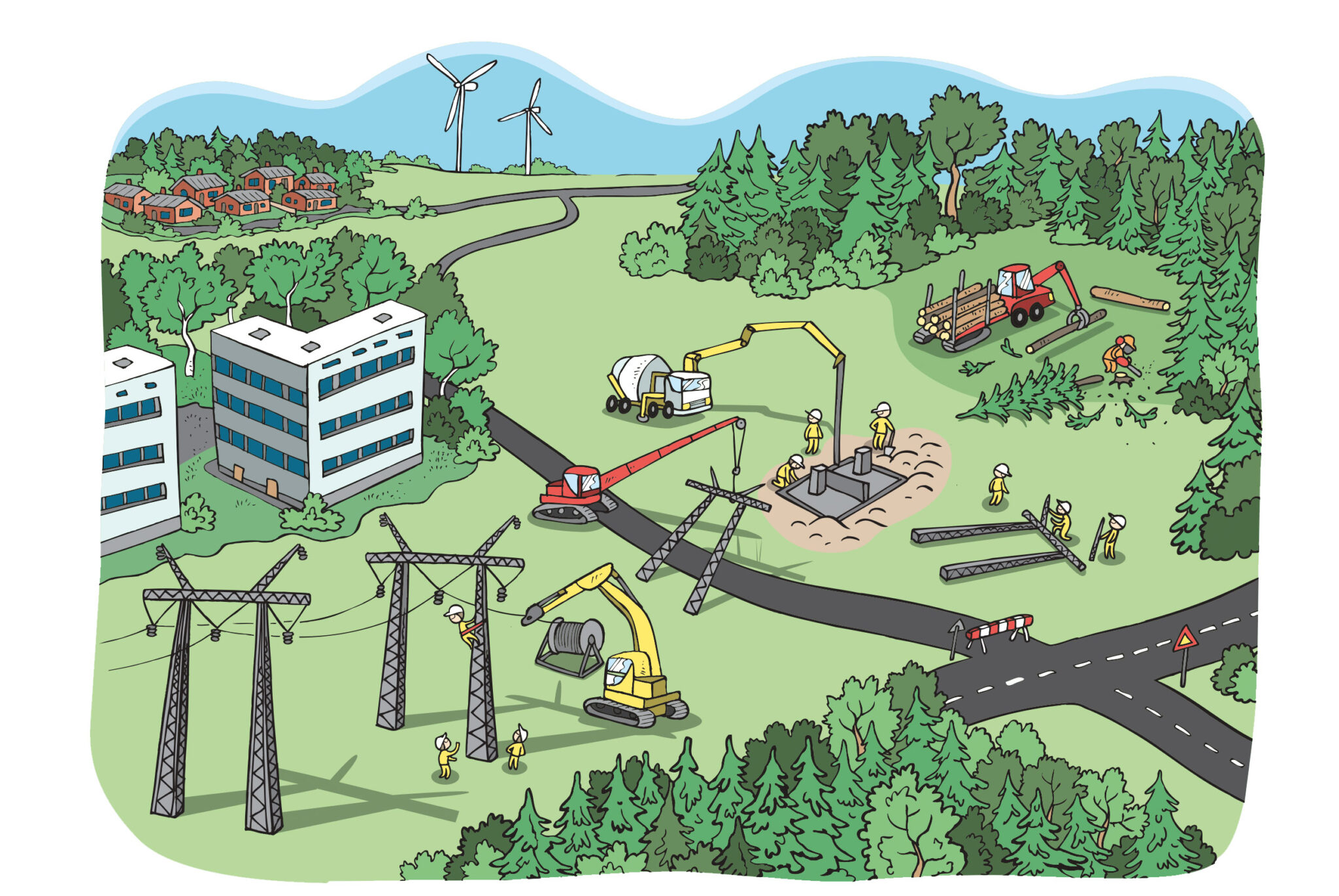
The brand is born from the union of image and reputation. Image is the picture a company builds of itself, while reputation is how others think the company actually operates. Fingrid is a transmission system operator with a monopoly and a proven brand. But why does a monopoly need a brand, as it does not have any competitors?
Transmission system operators, or TSOs, have a special role in society, both in Finland and abroad. They have been given a responsibility vital for the functioning of society: the functioning of the power system. In this role, TSOs are strictly regulated monopolies.
Monopoly status and statutory obligations typically cause organisations to be led from the inside, based on the monopoly’s own interpretations and notions of what the outside world needs and expects. External stakeholders are rarely consulted about the development of operations, since it is so easy to just play the monopoly card. “Reputation” and “brand” are not in the vocabulary of monopolies. Typical adjectives linked to monopolies are arrogant, inefficient and non-innovative. The concept of “customers” has traditionally been foreign to TSOs, which tend to speak of “connecting parties” or “load” to the power grid instead.
The existence and success of monopolies, just like any other organisation, is in the hands of external stakeholders. Reputation has a direct bearing on people’s trust in the organisation and willingness to work with it. A company with a good reputation gets better employees, more satisfied customers, cheaper capital and the support of society. In the worst-case scenario, loss of trust can lead to loss of social acceptance.
From Fingrid’s point of view, the trust and support of society is a matter of life and death. Society can intervene in the TSOs operations at any time by changing regulations if the company fails to fulfil its task. As a result, TSOs must be especially careful about their reputation. “Reputation” and “brand” should be part of every modern monopoly’s vocabulary, and reputation management must be included in its strategy. On the other hand, even if the TSO has no interest in its own reputation, it will still have one in the outside world. It is the company’s choice whether or not to influence this reputation.
From Fingrid’s point of view, maintaining a good reputation means consulting stakeholders and developing operations based on the needs of stakeholders and not those of the company itself. Reputation is built by action – not words. Fingrid must be able to demonstrate that it is a “different monopoly”: a customer-oriented, efficient and innovative actor that humbly works for the good of Finnish society. These three adjectives define the image we are striving to build and differentiate us from the preconceptions attached to monopolies. We swim upstream in the river of traditional opinion on monopolies. But as they say, ”dead fish swim with the stream”.
We regularly survey our reputation amongst our stakeholders and develop our operations based on the feedback. The better someone knows Fingrid, the more positive their opinion of the company. Fingrid’s good work has also received international recognition: we were nominated the world’s best TSO brand in the energy industry’s international CHARGE brand competition in 2018.
Open interaction with stakeholders is a win-win situation. Our customers get better and more cost-efficient service when development is a collaborative effort. As the regulatory authority, the Energy Authority is an important stakeholder for us. From the Energy Authority’s point of view, mutual trust and transparency between Fingrid and the Authority support the regulations applying to the TSO and thus facilitate the company’s supervision. The same goes for political decision-makers and key ministries: the more they trust Fingrid, the better Fingrid is able to serve Finnish society.
Stakeholders’ trust must be earned every day. If an operator with a vital role in society says one thing and does another, its reputation will be gone in a heartbeat.
Read more: www.fingrid.fi/en/pages/company/careers/






